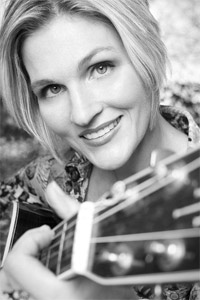Louisa Branscomb: No one else quite sees lovers and others in all their full, flawed, glorious humanity as she does.Louisa Branscomb’s Songs In The Key Of Life
By David McGee
I’LL TAKE LOVE: FROM THE PEN OF LOUISA BRANSCOMB
Various Artists
Compass RecordsOne of the most recorded songwriters in contemporary bluegrass, Louisa Branscomb’s examinations of love and loss get a poweful showcase in this collection of various artists’ interpretations of her tunes. Other than the opening two tracks, all the songs are solo Branscomb copyrights; the aforementioned pair were co-written with the singers who do magnificent jobs rendering them on the disc: Claire Lynch (who opens the festivities with a bright, soaring number about an eagerly awaited homecoming, “I’m Gonna Love You”) and Dale Ann Bradley, who does justice to a poignant end-of-life testimony, “I’ll Take Love,” which features not only Bradley’s sensitive vocal, but haunting harmonies by Alison Krauss and Steve Gulley, about whom it can fairly be said that harmony singing don’t get much better than theirs. In addition to some of the best roots music singers around--including Josh Williams, John Cowan, Sharon and Cheryl White, Becky Schlegel, Jim Hurst and Dave Peterson--the band assembled here is strictly top drawer: Alison Brown on banjo, Rob Ickes on dobro, Missy Raines on bass, Stuart Duncan on fiddle, Alan Bibey on mandolin, Buck White sitting in on piano, Mike Witcher on resophonic guitar and lap steel, Ben Branscomb on harmonica, among others.
The song that put Louisa Branscomb on the map: Alison Krauss + Union Station perform ‘Steel Rails’ Branscomb’s 1991 SPBGMA song of the year and still the longest running chart hit in bluegrass history.Though their themes are familiar, the songs from Branscomb’s pen don’t take the usual routes to their conclusions. In the somber “Your Amazing Grace,” Lynch, with Jim Hurst adding a plaintive vocal harmony, puts the load right on herself for being too overbearing and driving away a fellow she was smitten with (guys complain about this all the time, but we don’t hear many songs--make that zero--about it), while confessing that her inexperience in matters of the heart was her undoing--and in that admission comes a suggestion that things can change (“I swear it was an innocent transgression”), which is exactly where Branscomb’s songs separate themselves from so many others’ in seeing the bigger picture rather than focusing on that “single transgression” as the telling fact about a person’s character. In the quiet country ballad “Closin’ Nashville Down,” Steve Gulley offers a sensitive take on a story centered on a couples’ meeting at a Music City bar but being unable to make something deeper of it owing to their respective defense mechanisms--her verbosity, his shyness. At the end, as Witcher’s lap steel and Shad Cobb’s fiddle mourn softly, Gulley holds onto the hope of his next meeting with the gal in question producing something more substantive. Clearly, this is not your run-of-the-mill barroom pickup scenario. What happens when folks don’t exercise the innate caution of the characters in “Closin’ Nashville Down”? The answer comes later in the album, in the haunting “Silence Broken Beyond Repair,” with Dale Ann Bradley and Steve Gulley re-teaming in an epic, mournful ballad of dying love that started in a fever (“Way back then our love hit like lightning in the sky”) and dissipated as quickly as falling snow, the metaphor Branscomb poetically employs to explain the failed romance.
Louisa Branscomb sings her song ‘This Side of Heaven,’ April 28, 2011, the day following the devastating tornadoes in Alabama. On I’ll Take Love: From the Pen of Louisa Branscomb, this song is performed by The Whites. Accompanying Louisa on banjo is Joe Zauner.In the infectious strut of “Wearin’ the Blues,” Branscomb considers personal conduct in the aftermath of a breakup, and Josh Williams is on hand with a lively confession of breaking on the inside while presenting a sanguine demeanor on the outside, with Brown and Duncan enhancing the upbeat mood with their energetic banjo and fiddle support, respectively. In the country blues of “State Line,” Dave Peterson, with keening harmony assistance from John Cowan, offers another post-breakup scenario, figuring his healing balm is simply coming home to Carolina (“I’ll be better when I reach that state line,” he drawls), and in addition to Cowan’s distinctive holler, his journey gets some extra forward propulsion thanks to the low-down soloing of harmonica man Ben Branscomb, Ickes on acoustic slide and some honky-tonkin’ piano by Buck White.
Becky SchlegelThe chemistry of attraction and what it can do to a person inform two of Branscomb’s finest songs, the back-to-back beauties “Extra Blue” and “Stormy Night.” A tender ballad Becky Schlegel sings with affecting vulnerability with a harmony assist from Jim Hurst as Mike Witcher sends up a haunting cry on lap steel and Alan Bibey adds rustic mandolin fills, “Extra Blue” is a bald-faced admission of a woman’s physical desire for a certain azure-eyed gent that features one of Branscomb’s classic lines: “I would go through wrong all the way to right if I could get to you.” Which is how you wind up “Wearin’ the Blues,” come to think of it. The hard driving bluegrass of “Stormy Night” finds John Cowan unburdening himself of a high flying vocal like only John Cowan can deliver in a plea for forgiveness from his beloved on the theory that her affection is the cure for what ails him now. Add to the buoyant arrangement the eager, rolling banjo soloing by Alison Brown and Rob Ickes’s cheery resophonic guitar swoops, and you have something to write home about. All we ask of Louisa Branscomb is that she keep writing, to home or elsewhere (read: to us), because no one else quite sees lovers and others in all their complexity and in their full, flawed but glorious humanity as she does. In service to those songs, the singers and pickers assembled here have produced a nuanced, beautiful tribute to a treasured American poet, indeed, a great natural resource.
I’ll Take Love: From The Pen Of Louisa Branscomb is available at www.amazon.com
Founder/Publisher/Editor: David McGee
Contributing Editors: Billy Altman, Laura Fissinger, Christopher Hill, Derk Richardson
Logo Design: John Mendelsohn (www.johnmendelsohn.com)
Website Design: Kieran McGee (www.kieranmcgee.com)
Staff Photographers: Audrey Harrod (Louisville, KY; www.flickr.com/audreyharrod), Alicia Zappier (New York)
E-mail: thebluegrassspecial@gmail.com
Mailing Address: David McGee, 201 W. 85 St.—5B, New York, NY 10024




